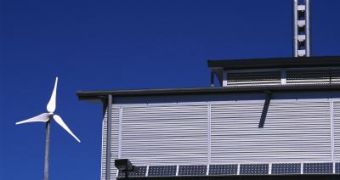All the electric power we consume on a daily basis is created continuously and step-by-step. If all the electric power generating plants stopped, or had serious critical failures, there would be no alternative to generate power, as none of the produced electricity is ever stored for future use, due to the inefficiency of the batteries.
However, most of the electric grids prevent this from happening, by sharing energy into the network, so if one area were to lose the power plant that produces energy for the specific zone, it can be powered with the help of surplus energy present in the grid.
The only efficient way to store the energy produced is by pumping water from lower regions into higher reservoirs. In the hope that they would be able to solve the problem, CSIRO and Cleantech Ventures have invested in a star-up company called Smart Storage Pty Ltd to design and sell battery based storage solutions.
These kinds of batteries can be used for storing electricity produced through renewable fuels or energy sources, like wind or solar power.
The current technologies used to make batteries, allows them to suffer frequent deep discharging and are unable to store high amounts of power in a relatively high volume, and high cost related to the life span. The batteries produced by CSIRO, using Smart Storage technology is based on the design of the CSIRO's Ultrabattery, tested in hybrid vehicles.
The battery is a hybrid, of a supercapacitor, and a lead-acid battery, both placed in a single unit. The use of advanced material to create the electrodes makes the batteries store and release energy in a rapid and efficient manner.
The classic capacitor consists of two electrodes separated by an insulator, which - under the influence of a voltage - is able to store electric energy. Supercapacitors work mainly on the same principle, only that instead of regular insulators, they use a nanoporous material for an insulator, so that they have increased storage densities. The usual nanoporous material used to produce supercapacitors is charcoal, which consists of a powder of rough particles, which have a larger surface area than a single sheet of aluminum, thus allowing more energy to be stored in its layers, for any given volume.
The manufacturer said that the Smart Storage battery will probably be up to 50 percent more efficient at storing energy, and will have a cycle-life at least three times longer than a conventional lead-acid battery. Nevertheless, the development and design of the new battery can be made in the already existing lead-acid battery plants.

 14 DAY TRIAL //
14 DAY TRIAL //